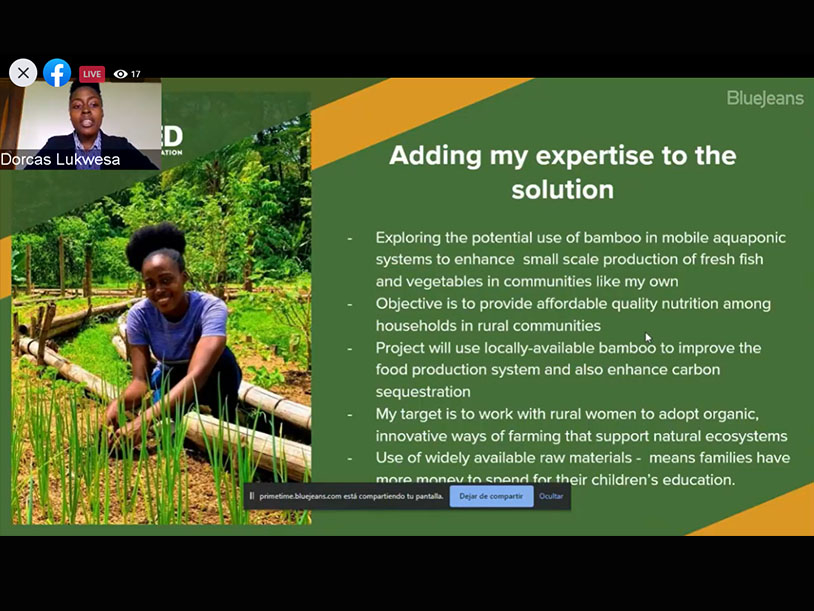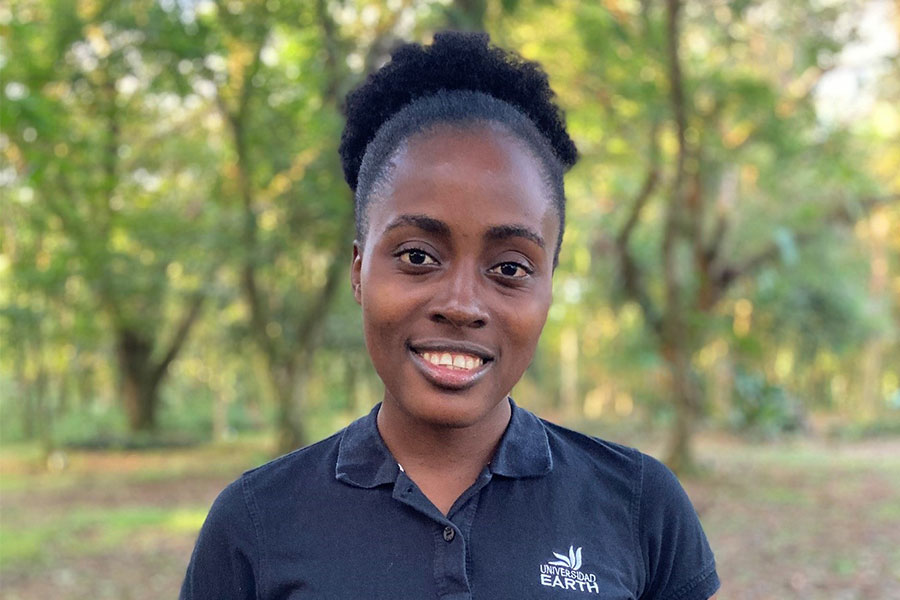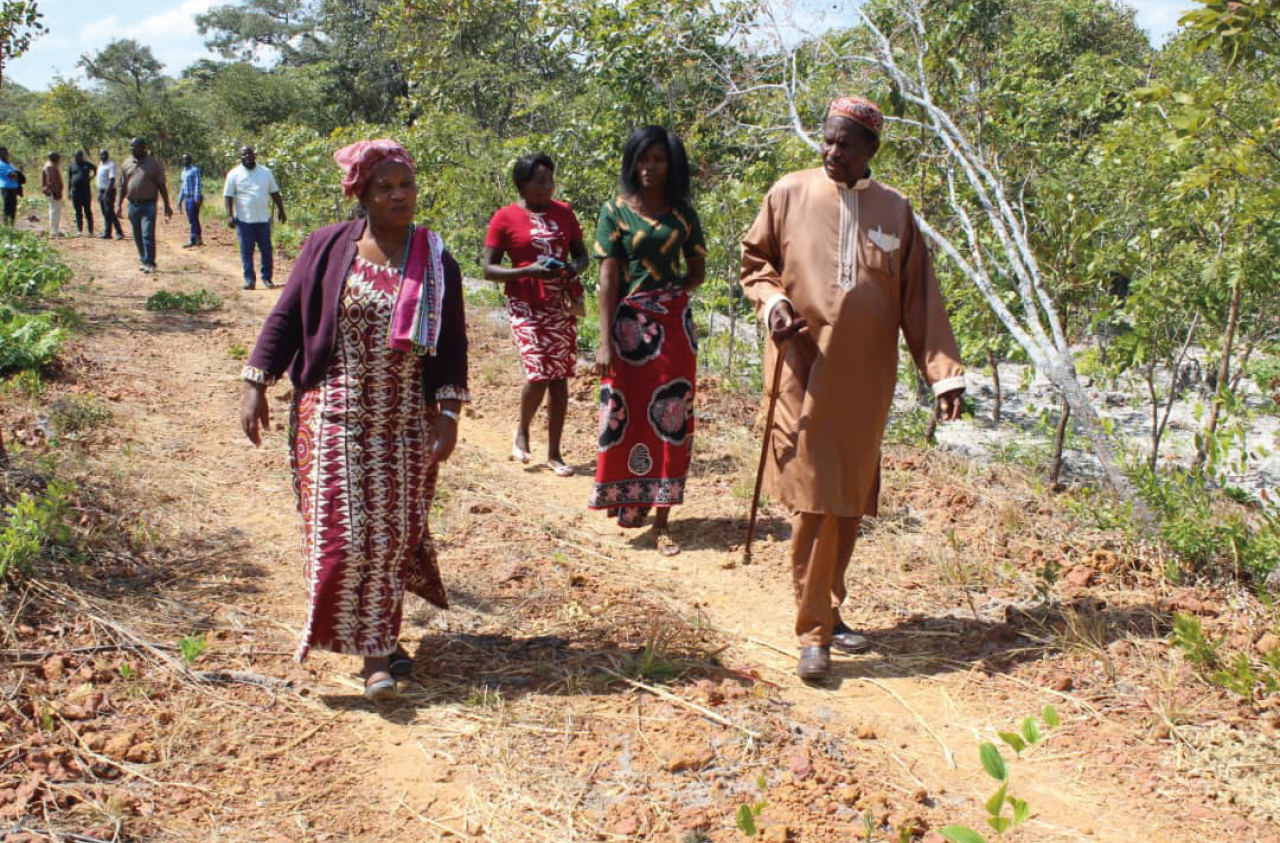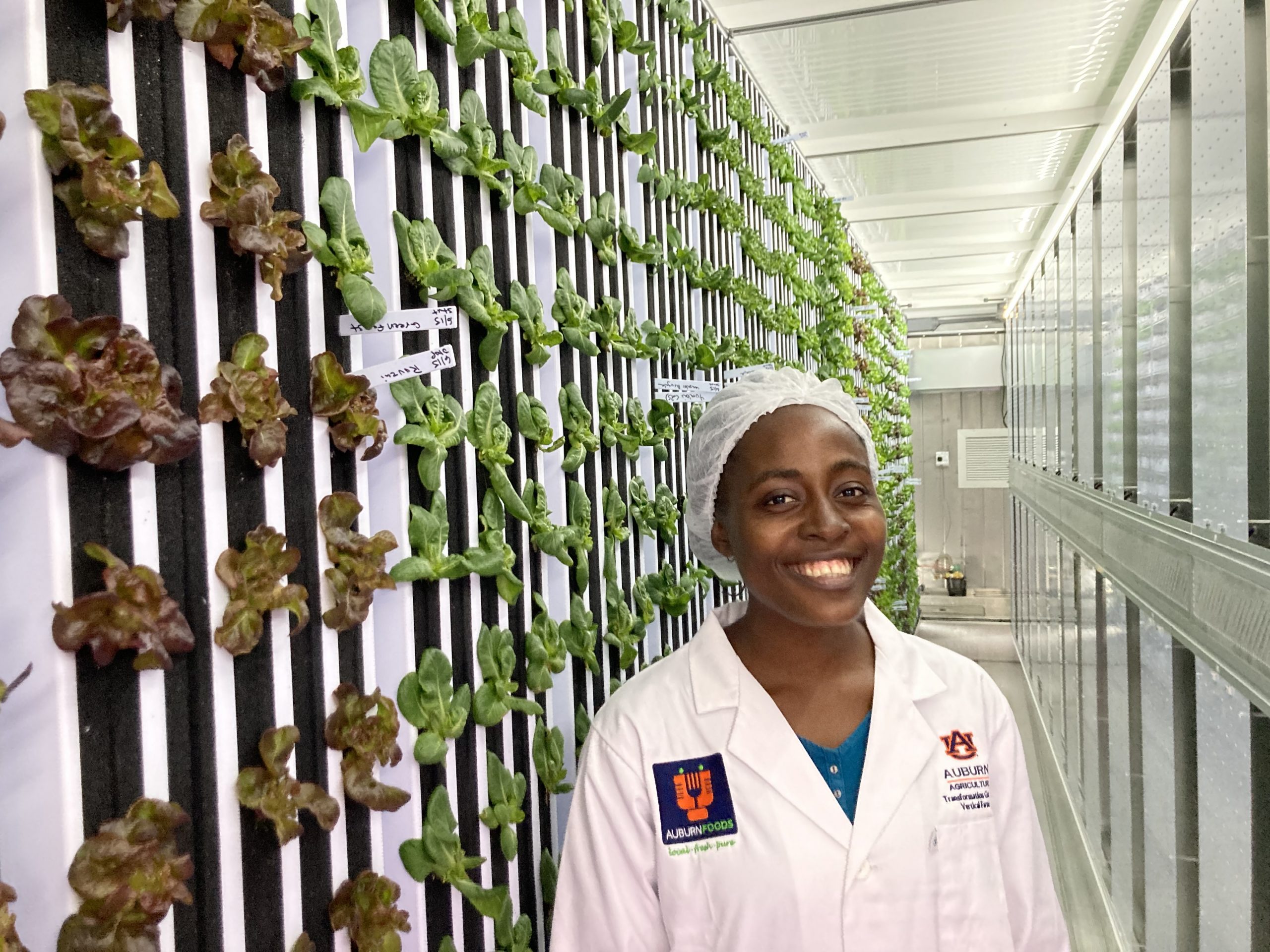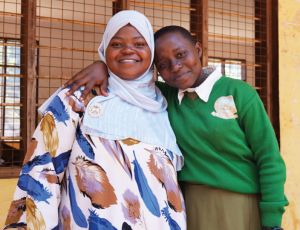I was born in the Luapula Province of Zambia, and I’m the third born in a family of eight children. When I was 13, my father decided to go back to his country of origin, due to financial difficulties and lack of job opportunities, while my mother, my siblings and I initially remained in Zambia. My mother couldn’t sustain us all on her own, so we had to separate and seek help from different relatives. I went to stay with my grandparents. That was when my life changed.
My grandparents tried their best to provide for us through subsistence farming, but by the time I was supposed to enter Grade 8, there were no resources available for me to continue my education. We couldn’t afford all the requirements, like a uniform, books, or pens. I was starting to lose hope, when the Matron at school, who was also a Teacher Mentor (guidance teacher), discovered the challenges I was facing in terms of financial support. She worked together with the deputy head teacher on the committee identifying girls like me to access support from CAMFED, and so ensured that I could return to school.
With my uniform, books, and fees paid for, I was able to go back to school and focus on doing well in my studies. It felt like I’d won! It was like a dream come true. Especially the new uniform – that was really amazing and something that really motivated me to work hard.
With support from CAMFED all I did was study, there was nothing to stop me anymore!
With the right support in place and my confidence renewed, I did well in my primary leaving exams and was one of the three girls and five boys who passed with a full certificate. From here I graduated up to the local high school known as Nchelenge secondary school, but I was there only one term when the government opened a new school in the province known as Musonda Girls’ Technical school. This was the first ever technical school for girls in Luapula province of Zambia, and they were selecting students who did well in Math, Science, and English to attend. I was proud to be among only 3 students chosen from my class to attend the new school.
I was so excited! It was a great opportunity for me to attend the first ever technical school for girls, and we were pioneers.

Dorcas is passionate about learning new agricultural techniques that can benefit her community in Zambia. (Photo: Arnold Katende)
I was relieved when I heard CAMFED could continue to sponsor my place at the new school, and I did well, completing in 2015. In the first year after I finished school I was involved with a CAMFED program called Shaping My Future which helped me to learn business skills and focus on building my career. With my newfound knowledge and a grant of 500 Kwacha, I founded a small maize farming business back in my home village where my family had farmed for years.
Returning to my home village, I was reminded of the struggles my family and many others like mine face as smallholder farmers. I’ve experienced first-hand the impact of climate change causing unpredictable weather, not having enough food to sustain us when droughts or flooding destroyed our crops.
At that moment I realized I could actually contribute more through agriculture than any other sector, and I was determined to reduce hunger in my community.
At that time I was working part time at the CAMFED offices and had joined the CAMFED Association (CAMA) Lusaka chapter, alongside other young women supported through school by CAMFED. So when I heard from fellow CAMFED Association member Abigail about an opportunity to study at EARTH University, a sustainable agriculture-focused university in Costa Rica, I jumped at the chance. With the support and encouragement of my fellow CAMFED Association members, I applied and was awarded a place as a Mastercard Foundation Scholar.

Dorcas hopes these climate-smart techniques will help make communities more resilient to climate shocks. (Photo: Kidist Tessema Derese)
Studying at EARTH University has been a great inspiration! My experience of hunger and hardship is the same as so many families in Zambia, but now with the climate-smart techniques I’ve learnt at EARTH, I’m ready to take action.
One thing I have learned that has really stuck with me: every action towards food security should always be accompanied by sustainability – we might be solving hunger today, but actually causing famine for tomorrow.
Before returning to Zambia, I took my ambitions to the next level and attended Auburn University in Alabama in the United States for a 15-week internship, where I designed a climate-smart aquaponics system for growing vegetables and farming fish, built using renewable material – bamboo!
Read video transcript
Now I plan to train farmers to adopt sustainable agriculture practices and improve resilience to climate change. I hope to get involved with the work of my colleagues in the CAMFED Association and our community partners at CAMFED’s climate-smart demonstration farm in Chinsali. I would like to be able to demonstrate aquaponics there, and train others to improve sustainable food production for their own communities through this system. My dream is that this low-cost innovation will bring sustainable food systems to villages as well as cities in Zambia, even places with little space or soil.
